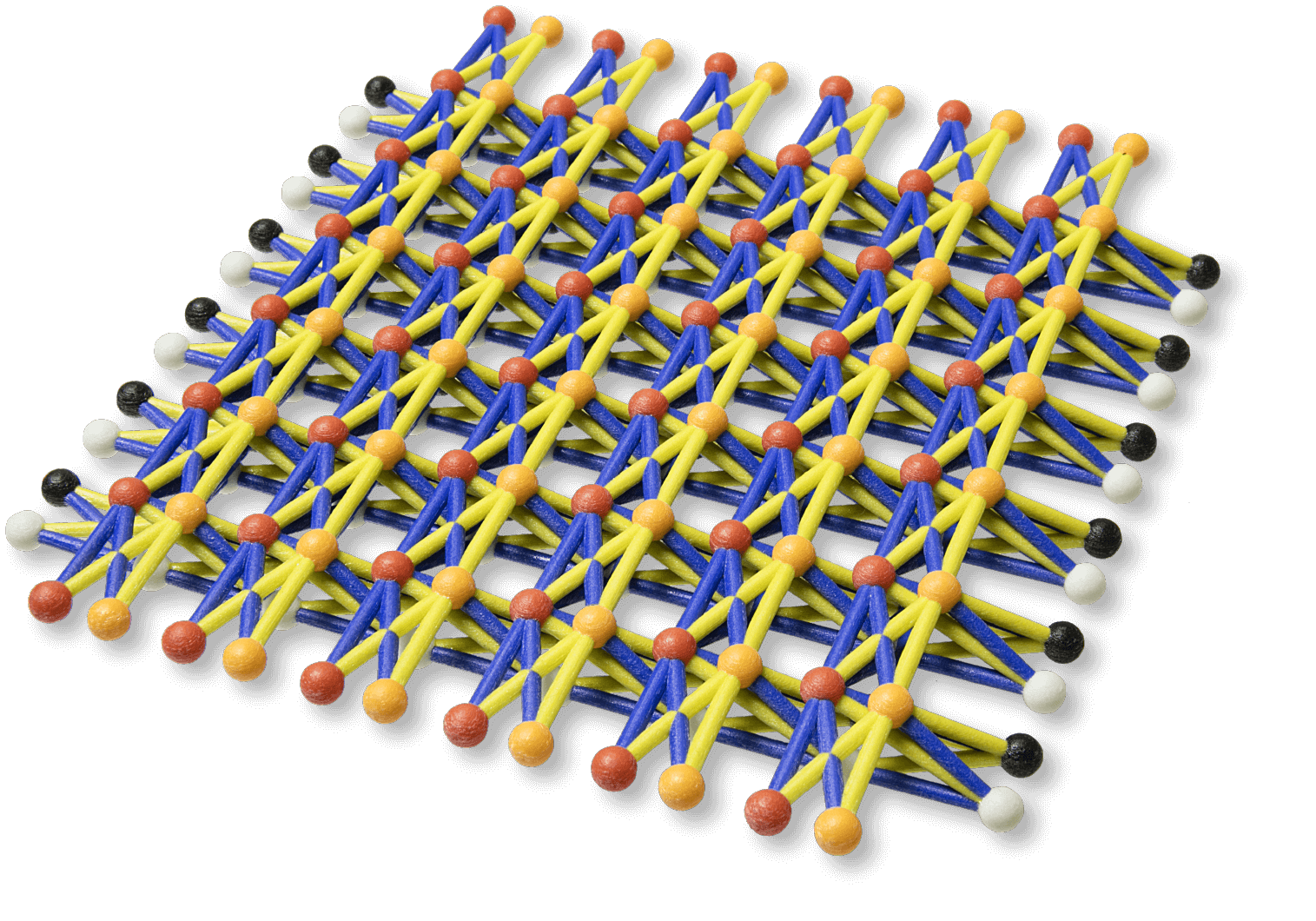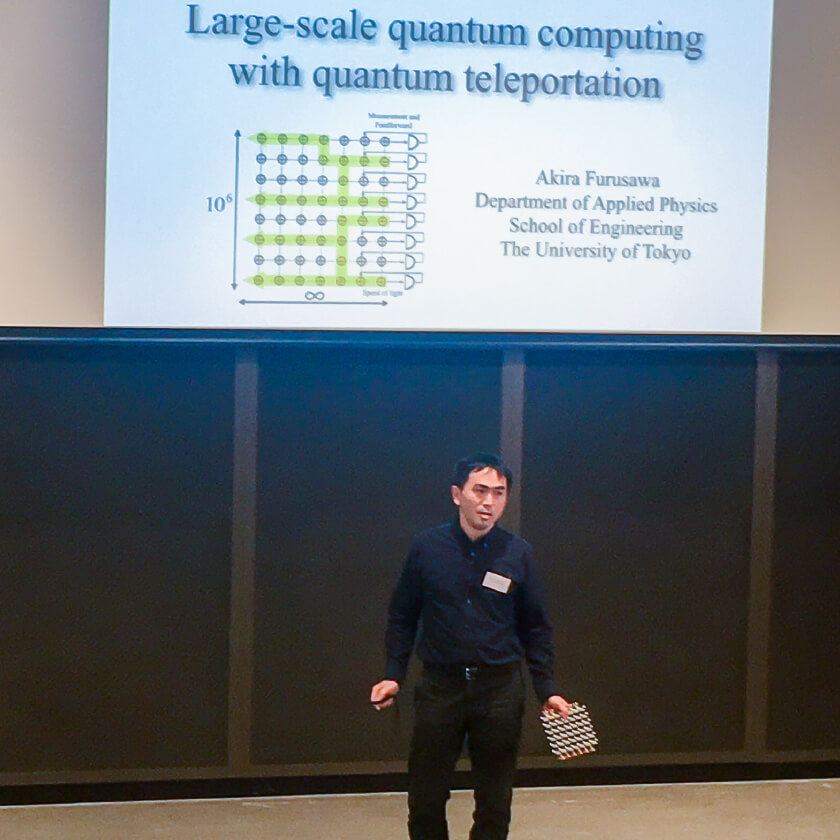Development of
Large-scale Fault-tolerant Universal
Optical Quantum Computers
Conventional computers express information in terms of 0s and 1s, but a quantum computer can hold both 0s and 1s, and by taking advantage of this property, can perform many different calculations instantaneously. It has been thought,however, to be difficult to use the quantum computer as a general-purpose computer due to issues such as the accuracy of the calculations and due to the limitation of its applicable field.
In this project, we are challenging the issue of generalization of quantum computers by using optical quantum technology.
The quantum computers currently available are designed using electrical signals, but we are utilizing optical signals instead of electrical signals: the optical quantum computer. Light has a higher clock frequency and can perform calculations faster than electric signals.

the quantum entanglement
When all computers are replaced by optical quantum computers,
we will obtain computer power that is unimaginable today.







